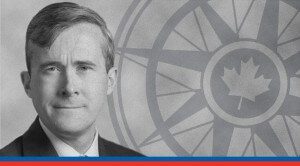 Alastair Gillespie, the author of the Macdonald-Laurier Institute’s Confederation Series, argues that Canada 150 should be a celebration of Canada’s success in building a modern nation that protects diversity.
Alastair Gillespie, the author of the Macdonald-Laurier Institute’s Confederation Series, argues that Canada 150 should be a celebration of Canada’s success in building a modern nation that protects diversity.
By Alastair Gillespie, June 26, 2017
Canada’s early leaders faced a startlingly modern question: how does a country summon a sense of belonging and establish lasting institutions that can reach across divides of national origin, language and religion?
Instead of following in Europe’s footsteps and drawing borders along nationalist lines, our Fathers of Confederation answered the Canadian question by boldly expanding the frontiers of what a country could be.
George-Etienne Cartier best expressed the essential idea: he called for Canadians to form “a political nationality with which neither the national origin, nor the religion of any individual would interfere.” He was far-sighted enough to ask: “How could someone possibly aspire to become a statesman worthy of the name, in our country, without being fully resolved beforehand to render equal justice to all races and creeds?”
Our Fathers of Confederation answered the Canadian question by boldly expanding the frontiers of what a country could be.
In the mid-19th century, it was by no means self-evident that political leaders should pursue this ideal of equal justice. Confederation was proposed as a fix for years of sectional conflict—fuelled by cultural and religious differences—in the old “United Province of Canada.” Ontario and Quebec were joined under one government from 1841 to 1867, which often acted in ways that frustrated their conflicting political wills. Many demanded outright separation.
Instead, our founders opted for federalism, a system that protects diversity by guaranteeing the liberty of the individual parts. Specifically, federalism ensured that the provinces were granted authority for various matters of local concern, such as education and property and civil rights. Ottawa was granted authority over matters of national importance, such as trade and commerce and defence, together with the power to make laws for the peace, order and good government of Canada (except where those powers were assigned exclusively to the provinces).
Paradoxically, federalism—the system that respects local difference—was the catalyst that brought Canadians together. For Quebecers, for instance, federalism protected their language, laws and institutions. As Cartier recognized, it guaranteed “the freedom of French Canadians to exercise their privileges in the province of Quebec.”
Ontarians also welcomed the return of self-government. George Brown argued federalism would push thorny local issues out of national politics, and rejoiced that members of parliament would “meet at last as citizens of a common country.”
Even John A. Macdonald, a reluctant convert to federalism, lauded a constitution that would “preserve for each Province its own identity—and will protect every local ambition.” The Maritimes shared this objective of preserving provincial institutions.
But the new federal government that formed in 1867 also reflected the conviction that all Canadians share many common interests. Macdonald insisted that Canadians form “one people and one government, instead of five peoples and five governments, with merely a point of authority connecting us to a limited and insufficient extent.”
Canada’s primary strength has not been its governments though. It is the union of our people that sustains the union of our provinces. Cartier’s ideal of Canadian nationality was not just a nice phrase: it had profound implications for how we live as Canadians.
Canadians have managed to bridge divides that continue to blight lives, fuel conflicts and divide humanity throughout much of the world.
Combined with the North American thirst for equality (a factor even in 1867), Canada’s diversity inaugurated a search for justice among our people, wearing down prejudice in all its forms (assuredly with causes for reproach along the way, especially in the treatment of Canada’s indigenous peoples). In the words of the poet of Confederation, Thomas D’Arcy McGee, “justice between class and class, and Province and Province, between creed and creed, between man and man, this must constitute the glory, the safety, and the strength of this new country.”
Today, Canadians have managed to bridge divides that continue to blight lives, fuel conflicts and divide humanity throughout much of the world. Our search for justice is not complete, but it’s enormously significant that Canadians are able to live peacefully as neighbours, regardless of their origins, language or religion.
150 years after Confederation, it seems two revolutions have come out of North America, Canadian and American. Canada’s united people—our “peaceful revolution”—offers an ideal to strive for, and hope in a troubled world.
Alastair Gillespie is a Canadian lawyer living in London, England, a Munk Senior Fellow at the Macdonald-Laurier Institute, and author of the five-part Confederation Series available at https://macdonaldlaurier.ca/confederation-project.




